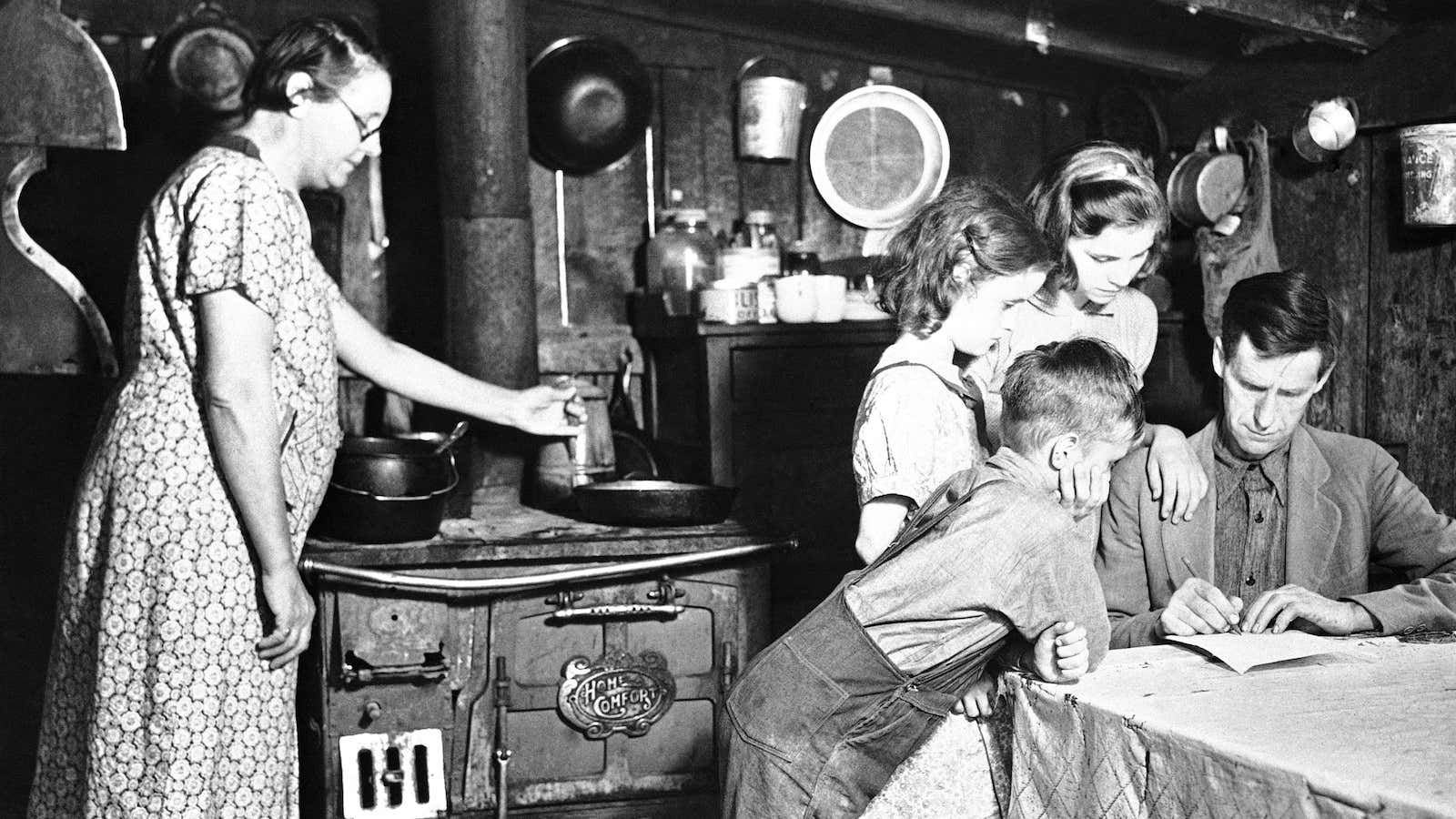As if balancing the demands of ambition, love, and family weren’t impossible enough, a never-ending flood of science seems designed to ratchet up parental panic and convince you that whatever you’re doing, you’re probably ruining your life or dooming your kids.
Maybe you’ve seen the headlines:
“Female fertility falls off a cliff at 35!” (False).
Or: “A single woman over 40 has more chance of dying in a terrorist attack than getting married!” (Extra false).
And my favorite: “Want a marriage with shared responsibility for childcare and housework? Get ready for a terrible sex life, followed by divorce.”
I first read about the correlation between less sex and sharing home chores a couple years ago, soon after the birth of my first daughter. The New York Times Magazine even weighed in with a cover story, “Does a More Equal Marriage Mean Less Sex?”(paywall). The answer, according to the couples therapist who wrote it, was, obviously!
The theory was that people are aroused by manly men and womanly women. So watching your spouse do something traditionally done by the opposite sex—a man vacuuming, for example—might arouse appreciation, but not sexual longing.
I have a good, and remarkably equal, marriage. We both have demanding jobs. We share the childcare and the housework (he definitely vacuums more than I do). And I’ve always thought we have great sex.
But this study got under my skin, I have to admit. It seemed to confirm that long-nagging suspicion that no one can have it all. I’d like to think I can trust my judgment, but still I wondered, does science know something I don’t? I might think I want an equal marriage, but will biology betray me?
The answer, thankfully, appears to be no.
Those studies may not have been completely wrong; but they were significantly dated, based on couples surveyed in the 1980s and early 1990s. New research on couples who got together more recently has reached a totally different conclusion: Sharing chores and childcare these days actually leads to better sex and happier, more stable relationships.
“What’s happening is that couples who find themselves doing a traditional 1950s arrangement, they’re not happy with that,” Daniel Carlson, a sociologist at Georgia State University, told Quartz. “This is not what they want, it’s what they’re forced to do.”
Carlson and his colleagues studied a 2006 survey of nearly 500 couples to learn how the division of housework affects their sex lives. Unlike the earlier studies, they found no statistically significant difference in how much couples had sex based on their housework arrangements.
Then, in the latest research, Carlson looked at the same couples’ reported division of childcare and compared that to how they rated the quality of their relationship and sex lives. Carlson found that in unequal arrangements, where women did most of the childcare, couples reported worse sex and less satisfying marriages. (Are you listening, guys?)
Interestingly, it was the quality, not the quantity, of sex that varied based on the division of childcare. On average, the men and women reported having sex about seven times per month. It was just that both partners thought the sex was worse when women were doing more than 60% of childcare.
The couples had the highest quality relationships and sex when they shared childcare equally, which the researchers defined as each partner doing somewhere between 40% and 60% of the work.
The researchers conclude that the vast majority of couples want to share childcare equally, and when they don’t, men and women were equally dissatisfied generally.
“That speaks to the notion that sharing is not just what women want,” Carlson said. “It’s what people want.”
Of course equal marriage is easier said than done. Unequal pay and child leave policies make sharing duties at home hard to pull off, Carlson pointed out, “so many get sidetracked and pushed into these conventional arrangements.”
I was lucky enough to be able to take maternity leave for both my daughters, but my husband wasn’t able to take much time off. That meant that even after I went back to work, I found myself remaining the go-to parent, largely because I’d spent more time with the girls. It took some concerted effort on both our parts to change that. It also helped that he had the flexibility to work from home, even as I took a job that meant longer days in an office. It’s a very different arrangement than either of us grew up with.
But that kind of shift is perhaps the most encouraging aspect of the research.
“All these things are changing,” the family historian Stephanie Coontz told me. “In the 1950s if you wanted to have a stable relationship and you were a woman, you’d better stick to being a good housekeeper and a good listener. And God forbid you should ask your husband to do dishes or change diapers.”
Today the opposite is true.
“Shared childcare and housework is now one of the best predictors of marital satisfaction and actually we find that it lowers divorce rates,” Coontz said. “What men and women want in a relationship is someone they can respect, someone who’s interested in them but also interesting on their own, someone who shares their activities and interests.”
Of course, we still have a long way to go. Government policies and workplace conventions don’t make sharing easy, and women still seem to feel more guilty about balancing a career and having a family than men do.
But apparently there’s a major silver lining for those of us engaged in the hard struggle of negotiating an equal marriage: At least the sex will be better.




